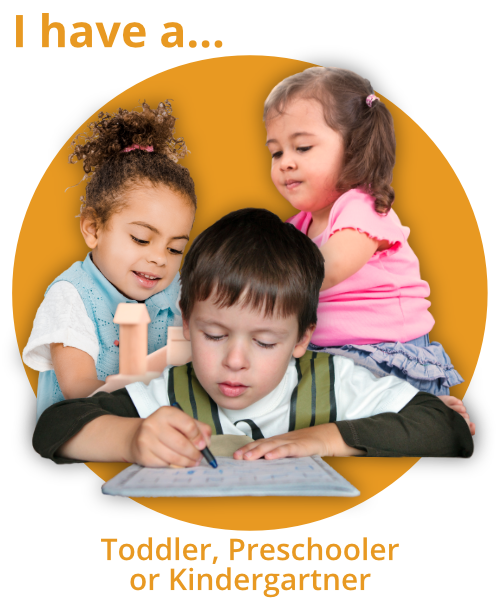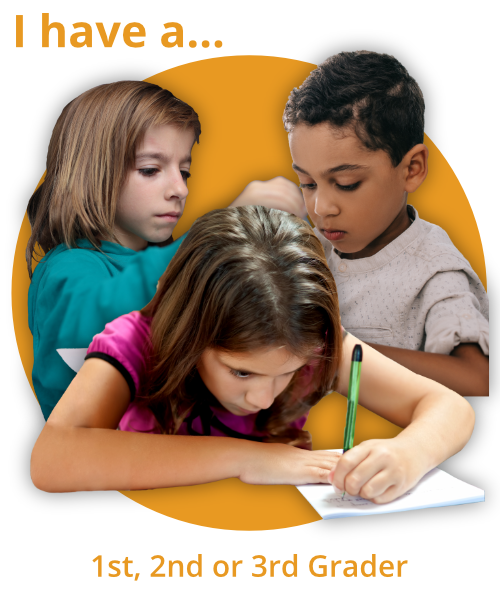Teaching Life Cycles
I'm Aubrey Hargis, Montessorian and mom of two. Despite being a life-long educator, children's developmental stages have taken me completely by surprise as a parent. It's one thing to know that certain milestones are coming up. It's another to EXPERIENCE them. And those experiences always change me in both subtle and not-so-subtle ways…
because education is a journey we take with our children, and the opportunities for learning start over every day.
Hey Sweet Friend
Do me a favor right now: I want you to take your hands, put them over your heart, and just feel your heart beating for just a few seconds. Do you feel it? It's beating and beating and beating. In the same way, your child is growing and growing and growing, even when you don't see it. Growing is something that happens automatically, without our intentional influence. Just like breathing, and our heart beating, they grow--just by living. It's a kind of magic. It really, really is. And I believe in that kind of magic.
If you do, too, you may want to consider joining me for a course! You can see all of my current offerings here.
Meet Pamela
Each week, I like to feature someone who is a part of our Child of the Redwoods community! The participants in this community are such a huge part of what makes it special. This week, we’re sharing advice and inspiration from Homeschool of the Redwoods Primary alumna, Elementary alumna, and Constellation member Pamela, Montessori Mom of 3! You can learn more about Pamela here.
The Child’s Fascination with Life Cycles
Children are interested in the life cycles of other creatures, partly because they're interested in their own beginnings and endings. They're interested in other living creatures that are around, and they're going to have a natural interest in things like birth, and reproduction, and death. Young toddlers have some base level awareness, but some time between toddlerhood and the older preschool years, their basic acknowledgment turns to deeper questioning. Instead of just knowing “Oh, Mom said that’s dead,” and then moving on, the child is FASCINATED. How can this living thing not be living anymore? Is it still living if it's dead? And if it's not living anymore, then what is it? And if it was a squirrel, is it still a squirrel once it is dead? These conscious thoughts start entering your child’s mind as they transition from the period of the unconscious absorbent mind to a consciously absorbent mind - around age 3.
It's the same with birth! Your children are used to seeing the ducks at the pond and then one day there are tiny little ducklings. They look similar in some ways to the big ducks but they are not quite the same! Are they still ducks? Where did they come from? It’s the same with a new baby in the household!
In Montessori, we teach the life cycle very specifically. We’re not just interested in predator and prey, but we want to look fully at the ending and the beginning of life. The best way to observe this is to explore like an egg, and then if possible, witness the hatching of an egg! If not in your backyard or your neighborhood, try the nature or science center or zoo!
If the hatching of a bird’s egg is not a possible experience for you, consider the hatching of insect eggs. Ladybugs can be fun to watch and are purchasable in a kit; you can also try praying mantises (be aware: if left alone too long, the hatchlings will eat each other, so you will want to make this release quickly). You can also try with butterflies, or tadpoles, or snails--just make sure that whatever you are releasing is safe and appropriate for your local ecosystem!
From Concrete to More Abstract
So the first experiences we offer a child should be VERY literal! As an extension to those things, we can use classified cards: perhaps matching the baby animal to the adult animal, or sequencing the life cycle events on little cards. Remember: these cards are GREAT extensions--but they are not the core lesson. They shouldn't be the only way that children are exposed to the lifecycle.
You can also give role-play a spin--this is a wonderful tool for extending a lesson. So for example, with a butterfly, you can act out the emergence of the butterfly from the chrysalis or cocoon out into the world. It's fun to do this with music on in the background, just pretending to be the butterfly and telling that story. It’s great to find books that detail the story of the lifecycle of an animal if storytelling feels less comfortable for you and wonderful to have resources for children to do a little independent investigation and research, as well.
We Talk About the Human Life Cycle, Too
Do not neglect the conversation about where babies come from. You need to have The Talk with your children, and you need to start it early. Why? Because when children are toddlers, they are so curious about their bodies, and they need to know what their body parts are for. They are so interested in having these body parts and seeing the visible sexual organs just in there, they just take it at face value! To them, it's just another part of the body. It's a penis. That's that. Or it's a vulva. It's a real body part, and it's just like your arm.
It's used for reproduction, which is cool, but your little toddler probably won't understand that quite yet. You're going to need to wait until they're a little bit older and they start getting more curious and asking more questions, and you’re going to start with the superficial information that answers the questions they have about their bodies.
As they get older, they might get suddenly super curious about understanding exactly how babies form. They want to know about birth, and they might start asking you a lot of questions that you didn't know you were ready for! Some of those questions can be kind of funny like my preschooler wanted to know: Why can’t I see your womb? Where IS IT? Show it to me?
Of course, I couldn't show him a womb. But it was an opportunity to talk about it. “I'll tell you the story of the womb! It's also called a uterus. You were inside there, you grew in there.” He could roleplay it. I could give him the details he was ready for, and I was comfortable with sharing. Obviously, you are going to use your common sense to keep the situation helpful, factual, and appropriate.
We owe children the truth. The truth of how they were born, the truth of what sex is...allow them to ask questions about exactly how it happens and give them very concrete and truthful answers. They won't think anything of it! They might think that it's strange and interesting, they might be curious, but they don't have the kind of hang-ups that we do as adults. So keep an open mind. If it's something that you aren't comfortable with, or if you were raised in a way, where a lot of things about sex or birth or your private parts were thought of as dirty: it’s time to work on shifting your paradigm. We want to raise children who love their bodies and understand what their body parts can be used for someday if they choose. The young years are a fine time to talk about it.
In those preschool years, you're also going to want to be talking about diverse families. You know, not every child is born from the mother that raises them for life. Talk about adoptive families and all varieties of family structures!
As they get on to Elementary, they're going to need to know more of the details about sex, so do this pre-work while they're toddlers. Allow them to understand their body parts and name them, and not just because it is proven to help prevent child sexual abuse, but also because you are setting the stage for children to ask the questions that they need to know the answers to in the future. These are conversations that I feel like are essential...and this is just a little toe-dip into them.
Life...and Death
The Lifecycle--it’s not just birth and reproduction and sex, but also the end of life. It can be really, really hard to teach your children how to grieve, and sadly, you will likely have some experience that is real to you while you're raising your children that allows you to explore death together. It might be the death of a pet, or it might start with the death of a family member.
This is another case where it is important to be super truthful with your children. When you’re honest, you set up a trusting relationship, and help them understand that you are a reliable and understanding source of information. Then, if you don't know the answer to something yourself, you can help them troubleshoot it and figure it out.
They Will Find It Out Eventually, Regardless
Children are exposed to so much more, so much more quickly in the internet era. These are conversations that you want to have already had with your child before they get there. So that trusting relationship built-in honesty already exists and so they know they can come to you. We cannot ultimately control our children's choices, just like nobody can ultimately control our choices about how we think and feel, and behave in life. But we can set them up for success by being very truthful, and approaching all of this lifecycle talk from a very curious and very positive perspective.
Gratitude
I am grateful that my parents had these deep conversations with me about the life cycle and my own body, and about my responsibility to keep my body safe. I am glad they taught me to love my body and to be curious and interested in all the things that my body could do or might want to do someday in life. I'm so grateful for that open relationship that I had with them that built trust because this helped me to become the kind of parent who didn't think anything of it. My husband did not have this privilege in his upbringing, and it is something that I have personally needed to bring to the table. I am so grateful that I had that background.


